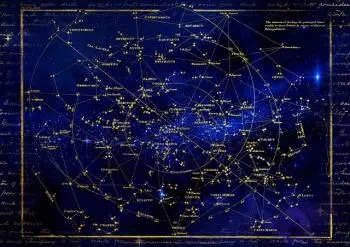
Astronomy and astrology are two fields that, at first glance, may seem similar due to their relationship with the stars and bodies. However, they are radically different disciplines in terms of approach, methodology and objectives.
In this article, we will analyze the fundamental differences between astronomy and astrology, clearing up any confusion that may exist between the two.
Astronomy: the science of the universe
 Astronomy is a natural science that focuses on the study and understanding of the universe and the celestial objects that make it up. Its main objective is to observe, analyze and explain astronomical phenomena using the scientific method.
Astronomy is a natural science that focuses on the study and understanding of the universe and the celestial objects that make it up. Its main objective is to observe, analyze and explain astronomical phenomena using the scientific method.
Key features of astronomy are highlighted below:
Scientific method
Astronomy is based on the scientific method, which involves observation, collecting data, formulating hypotheses, and conducting experiments to test those hypotheses.
Astronomers use specialized instruments, such as telescopes and satellites, to study space and the stars.
Objectivity
Astronomy is governed by objective and verifiable principles.
Astronomical theories and conclusions are based on empirical evidence and precise observations. The results of astronomical research are reviewed and confirmed by other scientists before being accepted as valid.
Focus on physics
Astronomy focuses on the physics and chemistry of space, analyzing the composition, structure and movement of the stars.
Astronomers study stars, planets, galaxies, black holes and other celestial objects from a scientific perspective and applying the laws of classical physics and modern physics.
Accurate predictions
Astronomical calculations allow us to make precise predictions about phenomena such as eclipses, planetary transits, comets and the position of the stars in the sky.
These predictions based on kinematics calculations are fundamental for navigation, space exploration and many other practical applications.
Education and scientific dissemination
Astronomy plays an important role in science education and outreach. Astronomical research contributes to human understanding of the universe and generates interest in science in general.
Astrology: the belief in celestial influence
 Astrology, on the other hand, is a belief that holds that the movements and positions of the stars and planets can influence people's lives and personalities, as well as earthly events.
Astrology, on the other hand, is a belief that holds that the movements and positions of the stars and planets can influence people's lives and personalities, as well as earthly events.
Below are the key features of astrology:
It's not a science
Astrology is not considered a science as it has no scientific basis and does not follow the scientific method.
Their claims are based on belief in the influence of the stars on people's lives, rather than empirical evidence.
Horoscopes and zodiac signs
Astrology focuses on the study of zodiac signs and the preparation of personal horoscopes. Each sign is associated with specific personality characteristics and events in a person's life, depending on their date of birth.
Subjective interpretation
The interpretation of horoscopes and astrological predictions is highly subjective and depends on the astrologer. Different astrologers can offer divergent interpretations for the same person.
Use in entertainment and self-knowledge
Although astrology has no scientific basis, many people use it as a form of entertainment and to reflect on their personality and life. Some people find value in astrology as a tool for self-knowledge.
Not based on empirical evidence
Astrology has not proven to be more accurate than chance in predicting events or describing personalities. The lack of solid scientific evidence is one of the main criticisms it receives.
Conclusion
In short, astronomy and astrology are two radically different fields.
While astronomy is a science that seeks to understand the universe through the scientific method and objective observation, astrology is a belief that maintains that the stars influence people's lives and personalities, but lacks scientific evidence.
Astronomy contributes to scientific knowledge and understanding of the cosmos, while astrology focuses on the subjective interpretation of zodiac signs for entertainment and personal reflection.